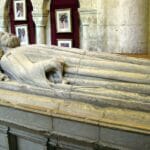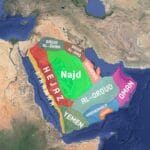Ever heard of King Athelstan? He reigned over England from 924 to 939 AD and was a pivotal figure in shaping the nation we know today. Let’s uncover ten fascinating facts about this remarkable ruler:
10 Facts About King Athelstan
- Grandson of a Legend: Athelstan wasn’t just any king; he was the grandson of the renowned Alfred the Great. Talk about a legacy! This lineage played a crucial role in shaping his reign and ambitions.
- Architect of a Unified England: In 924 AD, England was a patchwork of separate kingdoms. Athelstan, through strategic battles and savvy diplomacy, unified these fragmented territories, becoming the first king of a truly united England.
- Expanding the Realm: With England unified, Athelstan set his sights on expansion. He led campaigns north, conquering parts of Scotland and Wales, and significantly enlarging the kingdom he inherited.
- Master of the Seas: Athelstan understood the strategic importance of a strong navy. He invested heavily in his fleet, not just to counter Viking raids but also to control trade routes and establish England as a maritime power.
- Champion of Knowledge: Athelstan was more than a warrior king. He was a fervent supporter of education and scholarship, establishing schools, promoting the translation of Latin texts into Old English, and fostering a cultural renaissance.
- Patron of the Arts: Athelstan’s reign coincided with a flourishing of art, literature, and craftsmanship. His support for education and culture created an environment where creativity could thrive.
- Family Strife and Tragedy: Athelstan’s reign wasn’t without its shadows. He faced betrayals, conspiracies, and was even forced to execute his own half-brother, Edwin, for treason. The circumstances surrounding Edwin’s death remain a subject of debate among historians.
- Maintaining Unity: Ruling a newly unified kingdom was a constant challenge. Athelstan skillfully navigated internal politics, quelling rebellions, and consolidating his authority to preserve the unity he had fought hard to achieve.
- A Life Cut Short: Athelstan’s reign, though marked by significant accomplishments, was tragically cut short. He died at the relatively young age of 47, leaving much potential unrealized.
- An Enduring Legacy: Despite his untimely death, Athelstan left an indelible mark on England. He bequeathed a strong, unified kingdom that served as the foundation for future English monarchs and helped shape the nation’s identity.
What are some interesting facts about Athelstan?
Beyond his major achievements, Athelstan’s life was full of intriguing details:
- A Scholar King: Athelstan was a passionate bibliophile who amassed a collection of manuscripts and relics. Some scholars suggest that he may have commissioned the translation of the Bible into Old English, demonstrating his commitment to making knowledge accessible.
- The Power of Diplomacy: Athelstan recognized the importance of strategic alliances. He arranged marriages for his sisters to powerful European rulers, forging political bonds that helped ensure England’s stability.
- Quelling Rebellions: Unification didn’t eliminate internal strife. Athelstan faced rebellions, including one led by his own half-brother, highlighting the challenges of consolidating power in a newly unified kingdom.
Was Athelstan a Good King?
Athelstan’s legacy is multifaceted, prompting historians to grapple with the question of whether he was a “good” king. The answer, as with many historical figures, is complex:
Arguments for “Good”:
- Unification and Defense: He unified England, a feat that eluded his predecessors, and successfully defended it against Viking incursions, earning him the moniker “Victor of Brunanburh.”
- Visionary Leadership: Athelstan understood that a strong kingdom needed more than military might. He invested in education, religion, and governance, laying the groundwork for a more prosperous and stable society.
- Strategic Alliances: Recognizing the importance of diplomacy, Athelstan cultivated relationships with other European rulers through strategic alliances and marriages, ensuring England’s security and influence.
Arguments for a More Nuanced View:
- Ruthless Tactics: Some historians argue that Athelstan’s methods, particularly in consolidating power and quelling dissent, were ruthless by modern standards, potentially overshadowing the needs of certain groups or regions.
- Historical Context: It’s essential to consider the norms and expectations of leadership in the 10th century. Applying 21st-century values to historical figures can lead to anachronistic judgments.
Ultimately, evaluating Athelstan’s reign requires a nuanced approach, weighing his accomplishments against the methods he employed and considering the historical context in which he ruled.
What are some facts about King Alfred the Great and King Athelstan?
While Alfred the Great laid the groundwork for a unified England, it was his grandson, Athelstan, who achieved this monumental task.
- Alfred the Great (849-899 AD): Known for his defense of Wessex against Viking incursions, his promotion of education and literacy, and his establishment of a legal system.
- Athelstan (894-939 AD): Built upon Alfred’s legacy by uniting England, securing its borders, promoting education and the arts, and establishing a centralized monarchy.
How Long Did King Athelstan Live For?
Based on historical records, Athelstan likely lived for approximately 47 years. He is believed to have been born in 894 and died in 940. While pinpointing exact dates from this period can be challenging, historical sources provide a generally accepted timeframe for his life.
Why was Athelstan so special?
Athelstan’s reign marked a turning point in English history. Here’s what made him stand out:
- The Unifier: He transformed England from a collection of disparate kingdoms into a unified nation, establishing a sense of national identity that would shape its future.
- Military Strategist: Athelstan’s victories against Viking forces, particularly at the Battle of Brunanburh, secured England’s borders and solidified his reputation as a formidable military leader.
- Builder and Patron: He invested in infrastructure, founding Winchester Cathedral, and was a patron of arts and education, fostering a period of cultural growth.
- Administrative Reformer: Athelstan implemented legal and administrative changes, strengthening the monarchy, and laying the groundwork for a more centralized and efficient government.
- Diplomatic Strategist: He understood the importance of international relations and fostered alliances with European rulers to secure England’s position on the world stage.
Athelstan’s multifaceted reign laid the foundation for a stronger, more unified, and culturally vibrant England.
Who is Athelstan loyal to?
While evidence suggests Athelstan was deeply loyal to England and its people, historical interpretations of his allegiances are complex:
- A King’s Duty: His actions suggest a strong sense of duty to his kingdom and a desire to create a prosperous and secure realm for his subjects.
- Religious Convictions: As a devout Christian, his faith influenced his policies and relationships, using shared religious values to foster peace and cooperation.
- Centralized Rule: His focus on a strong, centralized monarchy could be interpreted as a means to ensure stability and prevent future fragmentation, potentially prioritizing national unity over regional interests.
Athelstan’s loyalties likely encompassed a complex interplay of personal convictions, political realities, and a genuine desire to serve his kingdom.
Why did Athelstan not have children?
Athelstan’s decision to remain unmarried and childless is a subject of historical speculation. Several theories attempt to explain this choice:
- Dedication to Rule: He may have believed that marriage and fatherhood would detract from his duties as king, requiring time and energy he felt were better dedicated to governing a newly unified kingdom.
- Political Strategy: Marriage, often a tool for alliances, could have created political complications or power struggles, especially if his wife’s family sought influence.
- Personal Choice: It’s possible that Athelstan simply had no desire to marry or have children, prioritizing other aspects of his life and reign.
Without definitive evidence, the reasons for Athelstan’s decision remain unclear, highlighting the mysteries that history often presents.
Was Athelstan a Warrior?
Evidence strongly points to Athelstan being a skilled military leader who actively participated in military campaigns:
- Battle of Brunanburh: His decisive victory at the Battle of Brunanburh in 937 AD against a coalition of Viking and Celtic forces solidified his reputation as a warrior king. This victory was crucial in securing England’s unity and establishing Anglo-Saxon dominance.
- Military Campaigns: He led successful campaigns against the Vikings in the north, expanding his kingdom’s territory and demonstrating his military prowess.
- Strategic Acumen: It’s highly improbable that Athelstan achieved his military successes without personal experience and a strong grasp of strategy. Leading armies to victory in this period demanded leadership and a deep understanding of warfare.
While detailed accounts of Athelstan’s personal involvement in combat might be scarce, his military achievements and the title “Victor of Brunanburh” suggest he was more than capable on the battlefield.
Who was Athelstan in real life?
Piecing together the “real” Athelstan is an ongoing historical puzzle. What we know suggests a complex and fascinating figure:
- Ambitious Architect: He inherited a kingdom on the cusp of greatness and, through strategic brilliance, transformed it into a unified force.
- Military Mind: From repelling Viking invasions to expanding England’s boundaries, Athelstan proved himself a strategic and decisive leader on the battlefield.
- Patron of Progress: He wasn’t just about conquest; he supported education, the arts, and religious institutions, demonstrating a belief in building a well-rounded society.
- A Man of Contradictions: As with many historical figures, Athelstan’s actions likely involved difficult choices and compromises. His methods may appear harsh by modern standards, but they must be viewed within the context of his time.
Was Athelstan Religious?
Athelstan’s reign was deeply intertwined with his devout Christian faith:
- Generous Patron: He generously supported the Church, founding monasteries, commissioning religious artworks, and donating valuable relics, reflecting a deep personal piety.
- Faith and Politics: Athelstan used his faith to foster unity and diplomacy, appealing to shared Christian values during the Council of Eamont Bridge to negotiate peace with neighboring rulers.
- A Pious Legacy: The sheer volume of religious artifacts donated upon his death further underscores the importance of faith in his life.
Athelstan’s reign exemplifies the significant role religion played in early England, influencing politics, shaping societal values, and leaving an indelible mark on the nation’s history.
In conclusion, King Athelstan stands as a pivotal figure in English history. While questions and debates about his life and reign persist, his legacy as the unifier of England, a skilled military leader, a patron of learning and the arts, and a devout Christian continues to captivate historians and enthusiasts alike.
- Crypto Quotes’ Red Flags: Avoid Costly Mistakes - June 30, 2025
- Unlock Inspirational Crypto Quotes: Future Predictions - June 30, 2025
- Famous Bitcoin Quotes: A Deep Dive into Crypto’s History - June 30, 2025

















3 thoughts on “10 Facts About King Athelstan: Unveiling an Anglo-Saxon Legacy”
Comments are closed.